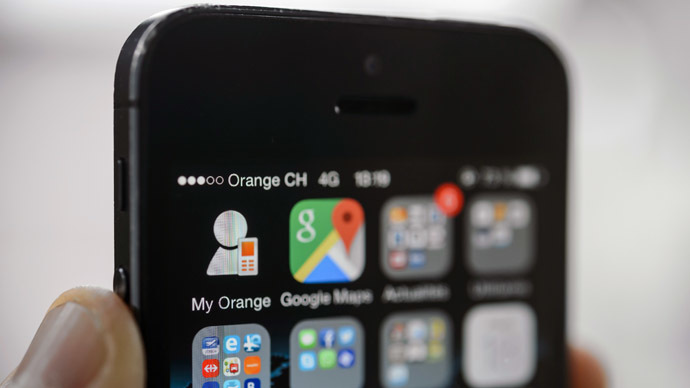Use of smartphones alters brain – study

A team of Swiss scientists set out on a quest to learn if using smartphones actually makes us smarter. Their study revealed that using a touchscreen device affects a part of the brain that processes touch.
READ MORE: Sound of seduction: Scientists reveal men do tingle when hearing fertile female voices
In a study published in the journal Current Biology, Swiss
researchers said that people who use smartphones have an enhanced
somatosensory cortex.
The team monitored 37 volunteers over 10 days – 26 of whom used
touchscreen phones and 11 of whom used only old cellphones.
Individuals then had an electroencephalogram (EEG), which
recorded voltage changes from brain activity. The strongest
response was triggered by the thumb, followed by the index and
middle fingers.
“By using electroencephalography, we measured the cortical
potentials in response to mechanical touch on the thumb, index,
and middle fingertips of touchscreen phone users and nonusers
[owning only old-technology mobile phones],” the study said.
READ MORE: Fast food, slow kids: Eating junk leads to poorer academic results, study shows
Based on the results, the researchers proposed “that cortical
sensory processing in the contemporary brain is continuously
shaped by the use of personal digital technology.”
The significance of the changes in the users’ brains depended on
how recent the exposure to screens was, the study clarified.
“The closer they were to their peak usage, in time, the more
brain activity they had associated with their thumb,” LA
Times quoted the lead investigator of the study and
neuroscientist at the University of Zurich, Arko Ghosh, as
saying.
“The findings don’t offer a major breakthrough for brain
science, per se, but they do represent a clever way to track how
the brain adapts during daily activity,” Ghosh said, adding
that scientists can now “start extracting which factors
matter for the brain, which don’t, what are the drivers of
plasticity and what are not?”
“To do this, connecting our digital footprints to brain
activity is what we need to do,” he added.
READ MORE: 'World’s first' smart bike helmet alerts drivers and cyclists, aims to reduce accidents












